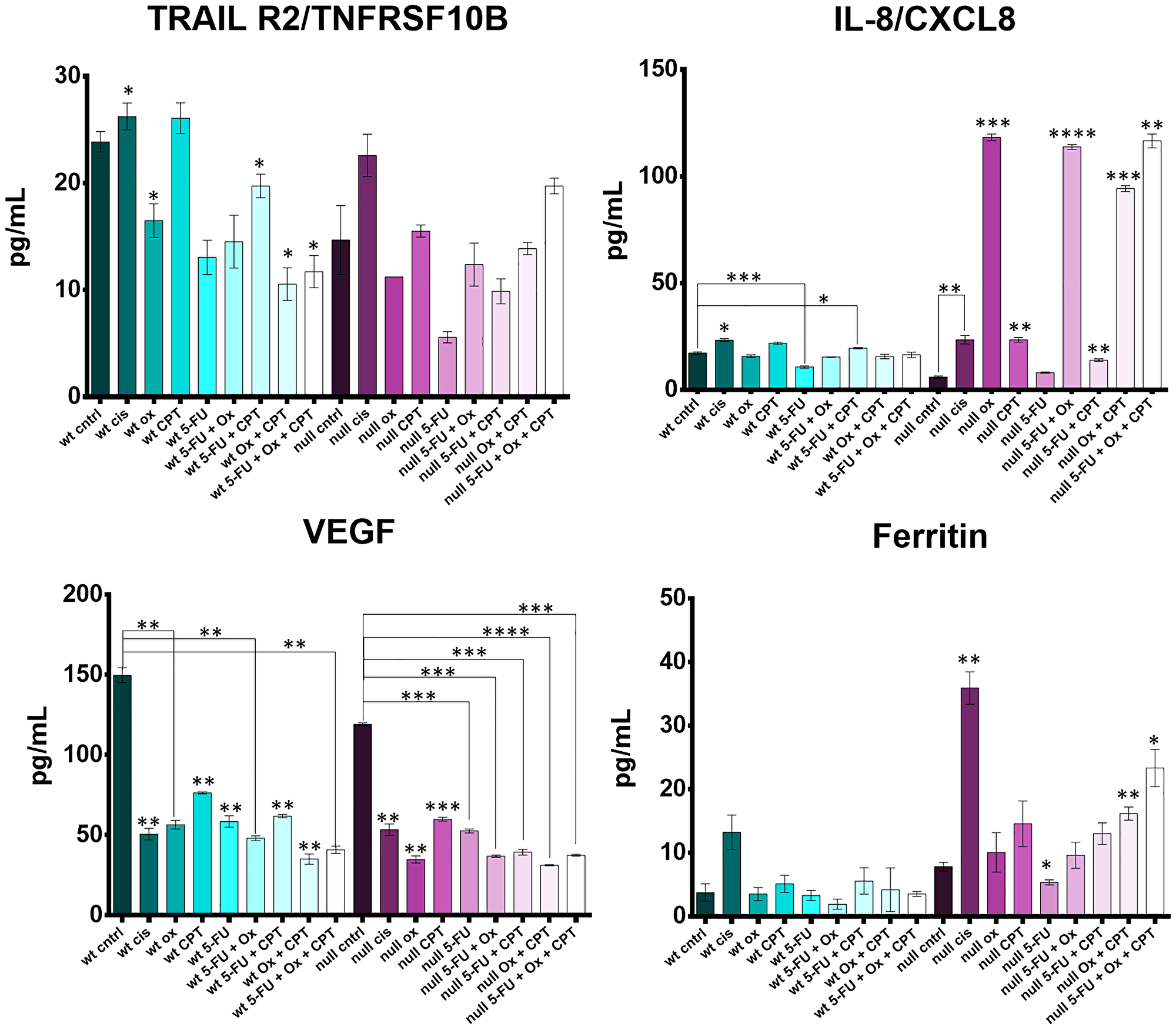Oncotarget published "Pan-drug and drug-specific mechanisms of 5-FU, irinotecan (CPT-11), oxaliplatin, and cisplatin identified by comparison of transcriptomic and cytokine responses of colorectal cancer cells" which reported that there was an increase in IL-8 by oxaliplatin and increase in ferritin by cisplatin which may contribute to cancer cell survival. Together, the findings here contribute to the authors' understanding of the molecular bases of efficacy and toxicity of chemotherapeutic agents often used for treatment of GI cancer such as CRC.
Together, the findings here contribute to the authors' understanding of the molecular bases of efficacy and toxicity of chemotherapeutic agents often used for treatment of GI cancer such as CRC.
Dr. Wafik S. El-Deiry from The Brown University as well as The Lifespan Health System said, "Colorectal cancer (CRC) is the second leading cause of cancer death worldwide and its incidence has been steadily rising in recent decades, with nearly 2 million new cases diagnosed around the world in 2020."
The five-year survival rate of this disease is as low as 13% once it reaches distant organs. CRC can be treated with surgical resection, radiation, targeted therapies, immunotherapy, and/or chemotherapy. Chemotherapy increases overall survival of patients by ~20 months and has remained a frontline therapy. 5-fluorouracil is the main active drug used to treat CRC and it has been combined with other drugs including oxaliplatin and irinotecan in the clinic to improve outcomes. Oxaliplatin are platinum-based therapeutics that damage DNA via inter- and intra-strand crosslinks. CPT-11 is a topoisomerase inhibitor that causes cytotoxic protein-linked DNA breaks.

Figure 8: Cytokine profiling reveals drug- and drug combination-specific induction of TRAILR2, IL-8, VEGF, and ferritin after 5-FU, CPT-11, oxaliplatin, and cisplatin treatment of human colorectal cancer cells. HCT116 and HCT116 p53−/− cells were treated at with the four drugs at their IC50s and combination treatment groups received 2–3 drugs, each at their individual IC50 concentration for 48 hours. Cytokine levels in the cell supernatants were measured with the Luminex 200 platform and significant differences (p-value < 0.05 by one-way ANOVA) between control and treated groups was calculated.
Though these primary targets are well-established, the precise mechanisms by which these drugs contribute to efficacy and toxicity in cancer patients remain incompletely understood. For example, questions remain regarding the exact mechanisms downstream of 5-FU-mediated TS inhibition. This type of analysis would also give clinicians a better understanding of the molecular basis of response of CRC tumors which have been exposed to these drugs.
TP53 is the most frequently mutated gene in cancer and is mutated in ~50% of CRC patients. The encoded protein, p53, is a transcription factor that is activated by cell stressors such as DNA damage, oncogenic signaling, and hypoxia. p53 responds by activating its target genes which mediate cell fates relevant to the response to chemotherapy including apoptosis, cell cycle arrest, and DNA repair, among others.
The El-Deiry Research Team concluded in their Oncotarget Research Output that this is the first dataset to directly compare transcriptomic and cytokine responses of CRC cells to equitoxic doses of 5-FU, CPT-11, oxaliplatin, and cisplatin across p53 status, and thus is the first to reveal vast differences in the magnitude of fold change of several genes and cytokines across the drug treatment groups.
Sign up for free Altmetric alerts about this article
DOI - https://doi.org/10.18632/oncotarget.28075
Full text - https://www.oncotarget.com/article/28075/text/
Correspondence to - Wafik S. El-Deiry - [email protected]
Keywords - chemotherapy mechanism, colon cancer, 5-fluorouracil, irinotecan, oxaliplatin
About Oncotarget
Oncotarget is a biweekly, peer-reviewed, open access biomedical journal covering research on all aspects of oncology.
To learn more about Oncotarget, please visit https://www.oncotarget.com or connect with:
SoundCloud - https://soundcloud.com/oncotarget
Facebook - https://www.facebook.com/Oncotarget/
Twitter - https://twitter.com/oncotarget
LinkedIn - https://www.linkedin.com/company/oncotarget
Pinterest - https://www.pinterest.com/oncotarget/
Reddit - https://www.reddit.com/user/Oncotarget/
Oncotarget is published by Impact Journals, LLC please visit https://www.ImpactJournals.com or connect with @ImpactJrnls
Media Contact
[email protected]
18009220957x105



